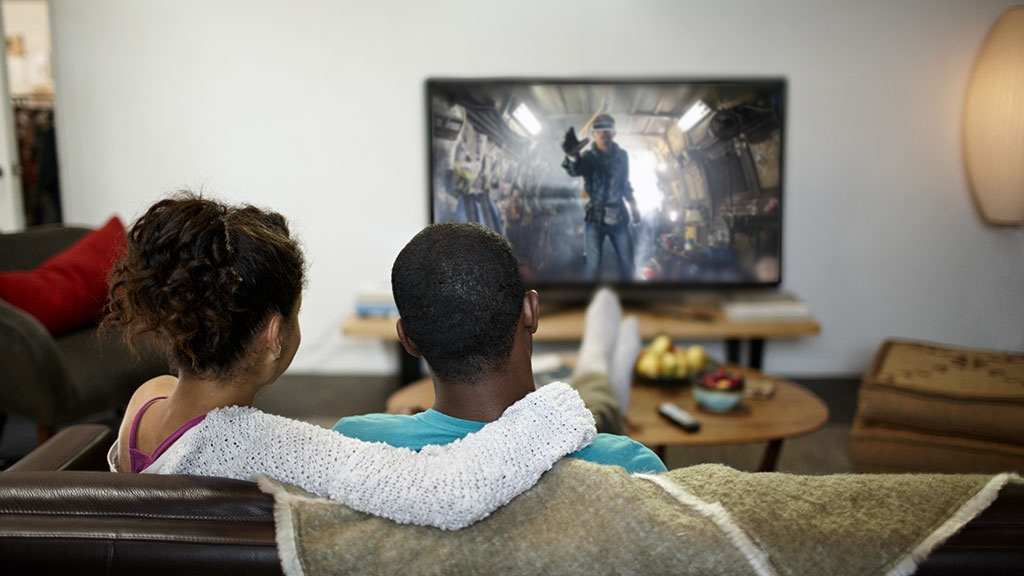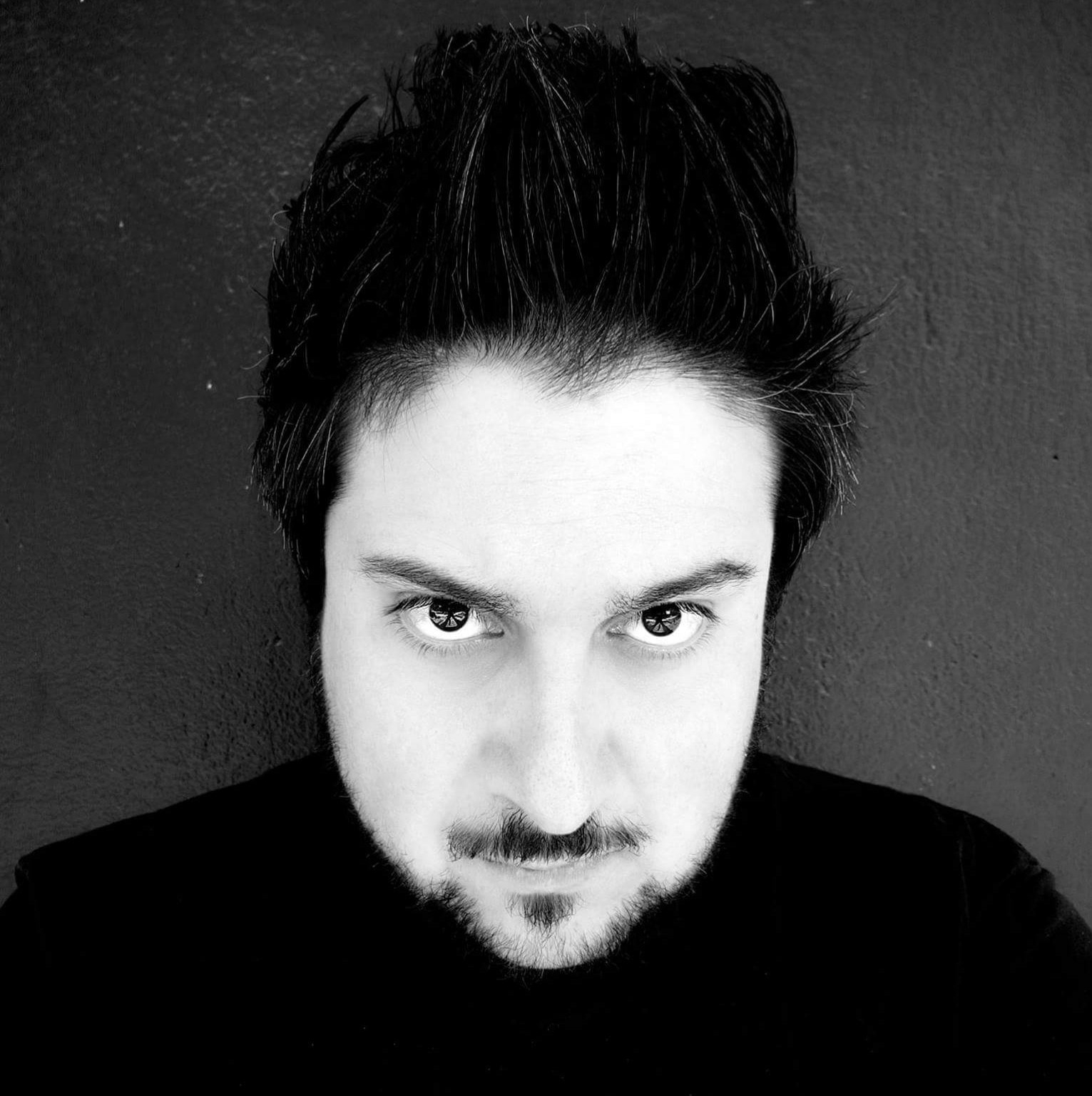Why Steven Spielberg is wrong about Netflix
Netflix movies don't deserve Oscars, says Spielberg

Sign up for breaking news, reviews, opinion, top tech deals, and more.
You are now subscribed
Your newsletter sign-up was successful
Late last week, celebrated filmmaker Steven Spielberg offered a somewhat controversial opinion regarding Netflix Original films in an interview with the UK's ITV, stating that "once you commit to a television format you’re a TV movie," before elaborating that good Netflix films "deserve an Emmy, but not an Oscar.”
Of course, the three-time Academy Award recipient's comments were driven by his feelings regarding the current state of the film industry, in which many smaller, more personal films are forgoing the traditional theatrical release route by going straight into living rooms, rather than competing with the mega-budget studio tentpole films that dominate the world's multiplexes.
While it's perhaps easy to sympathize with the mega-director's lamentations regarding the decline of the cinematic experience, it strikes us as somewhat elitist to suggest that a film's distribution method somehow makes it less worthy of praise because it didn't have a significant theatrical run.
It's not just Spielberg that feels this way — it's been announced that Netflix Originals will no longer be eligible to compete in the Cannes Film Festival. Netflix's films can still be shown at the festival, but they won't be up for the prestigious Palme d'Or. It's a huge blow for the streaming service, considering that its film Okja was nominated for that very same award last year.
So is the Ready Player One director right about the original films on Netflix and other streaming services? Or does 'The Beard' just need to get with the times and accept that cinema has changed?
Steven Spielberg and the Sundance bid
Coming so shortly after Netflix's first Academy Award win with its feature-length documentary Icarus, it comes as a bit of a slap in the face to filmmakers and producers who opted for the best distribution approach available to them. This is part of the problem, according to Spielberg.
"I’m just saying fewer and fewer filmmakers are going to struggle to raise money in order to compete in Sundance and possibly get one of the specialty labels to release their films theatrically, publicly."
Sign up for breaking news, reviews, opinion, top tech deals, and more.
However, looking at the history of Netflix Original films to date, it's clear that very few of those films deliberately set out to be released on a streaming service — most Netflix Originals are purchased by the streaming giant at film festivals long after they've been completed. Many of them were actually acquired at Sundance.
Last year, Netflix spent $12.5 million at the Utah-based film festival for the acquisition of Mudbound, a film that would go on to be nominated for four Academy Awards. This year, the streaming giant came away from the Sundance film festival with a number of films that will be released as Netflix Originals, including the hotly-anticipated Seeing Allred and White Fang.
Filmmakers are still taking their films to Sundance, but Netflix is the distributor that's willing to buy them.
It's not just smaller festival flicks that Netflix is interested in, either. While not exactly a hit with critics, the Will Smith-starring Netflix Original Bright had a production budget worthy of any blockbuster, costing upwards of $90 million — far from what you'd consider a TV-movie budget.
Though Spielberg recognised that "television is thriving with quality and heart,” he remained firm on his stance. "I’ll still make The Post and ask an audience to please go out to theaters and see The Post and not make it for Netflix," he said.
The film industry "implosion"
In 2013, Spielberg and fellow beard George Lucas predicted an "implosion" in the film industry, telling USC students that, "There's going to be an implosion where three or four or maybe even a half-dozen mega-budget movies are going to go crashing into the ground, and that's going to change the paradigm."
That change they spoke of predicted a world in which trips to the theater would be a more costly, prestige event, and where smaller films would either be shown at a vastly-reduced ticket price or would have to find alternative distribution avenues. "The pathway to get into theaters is really getting smaller and smaller," said Lucas.
In response to a comment offered by Lucas, Spielberg spoke specifically about how his Academy Award-winning film Lincoln was very nearly an HBO movie.
"I think eventually the Lincolns will go away and they're going to be on television," said Lucas regarding his friend's most recent film at the time. "As mine almost was," chimed-in Spielberg. "This close – ask HBO – this close."
By that reasoning, would this mean that Daniel Day-Lewis' incredible performance as Abraham Lincoln would've been less worthy of the Oscar it earned because of the film's ultimate distribution method? Of course, an Emmy is basically the television equivalent of an Academy Award, and carries its own kind of esteem, but the Oscars undeniably carry more gravitas and prestige.
And if we really are heading towards a future where only tentpole blockbusters are released in theaters and smaller dramas and independent films are relegated to the small screen, does that mean only Marvel and Star Wars films will be deserving of Oscar's praise in 20 years?
Had 2016's Best Picture winner Moonlight been made five years from now, it probably wouldn't receive the same 1,100 theater-release it had a couple of years ago by virtue of its smaller, more intimate nature – especially when you consider that that it's one of the lowest-grossing films to ever win the coveted award. No, five years from now we'd probably be watching it on Netflix or Amazon, because the big studios wouldn't want to take a chance and release such a risky proposition at the box office.
Either we get with the times and accept that streaming is here and can be a compelling option for many smaller, character-driven films – providing them with a home they likely wouldn't find otherwise – or we prepare ourselves for a future where Pirates of the Caribbean XII is up for serious awards contention.

Stephen primarily covers phones and entertainment for TechRadar's Australian team, and has written professionally across the categories of tech, film, television and gaming in both print and online for over a decade. He's obsessed with smartphones, televisions, consoles and gaming PCs, and has a deep-seated desire to consume all forms of media at the highest quality possible.
He's also likely to talk a person’s ear off at the mere mention of Android, cats, retro sneaker releases, travelling and physical media, such as vinyl and boutique Blu-ray releases. Right now, he's most excited about QD-OLED technology, The Batman and Hellblade 2: Senua's Saga.